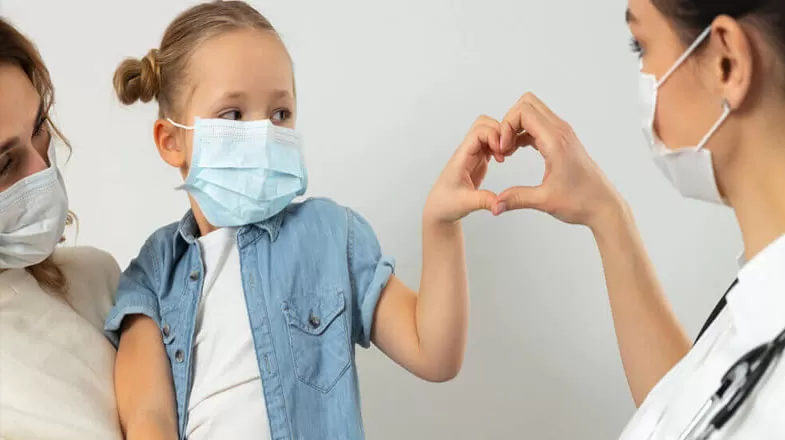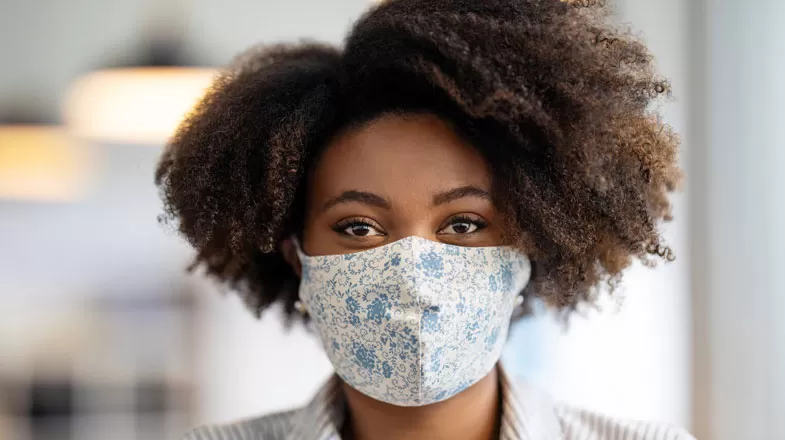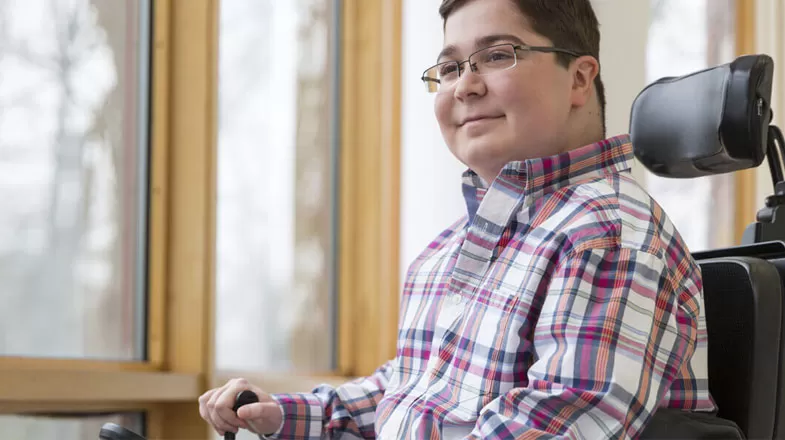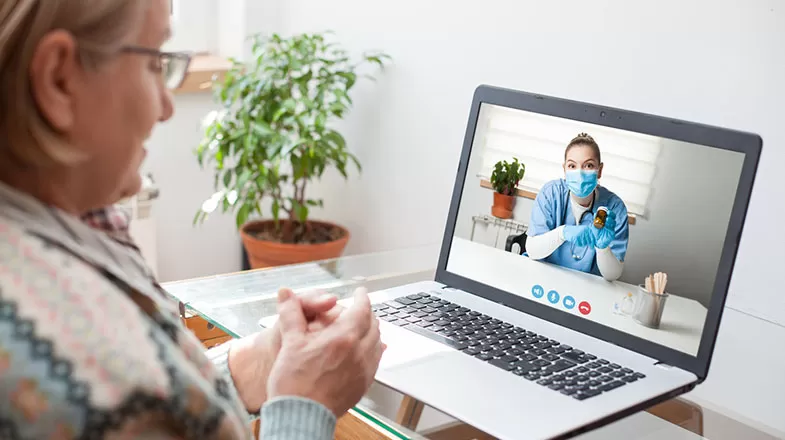Articles
Featured Articles
Read our latest stories on the people and scientific innovations making a difference in patients’ lives.

Living & Wellbeing
Celebrating World Patient Safety Day
World Patient Safety Day recognizes patient safety as a global health priority, a priority that Pfizer is committed to through its global health initiatives. Established in 2019 by the World Health Organization (WHO) and celebrated annually on September 17th1, the focus of this day is to bring together the global community of patients, families, caregivers, health workers, health care leaders, and policymakers to improve patient safety. “Patient safety is absolutely critical. It is the...

Living & Wellbeing
Matter of Moments: Elevating Awareness of AFib and its Connection to Stroke Together with Yahoo! Lifestyle
Atrial fibrillation, or AFib, is a common type of irregular heartbeat that puts people at greater risk of having a stroke and the prevalence of AFib is higher in people aged 65 and older.1Further, AFib is projected to affect around 12 million Americans by 2030.3 Yet, a Harris Poll survey of 1,010 U.S. adults fielded on behalf of the Bristol Myers Squibb-Pfizer Alliance showed the majority of people over the age of 40 are unfamiliar with the condition.4September marks AFib Awareness Month and Mat...

Living & Wellbeing
For many, today is the start of a fresh school or work week, but for the rare disease community, today marks the beginning of something more: Children's Growth Awareness Week (Sept 13 & 19)
For many, today is the start of a fresh school or work week, but for the rare disease community, today marks the beginning of something more: Children’s Growth Awareness Week (Sept 13 – 19). Rare disease is more than a part of our business; it’s our passion and drives the decisions we make each and every day. Pfizer is proud to join the growth disorders community to showcase “My Growth, My Health” this year. Together, we can raise awareness of the vital role that height plays in children’s...

Living & Wellbeing
Maintaining Positivity: A Mother and Daughter’s Perspective on Chronic Pain Due to Osteoarthritis
Ann Sullivan always tries to focus on the positive. As someone who has been living with chronic pain due to knee osteoarthritis (OA) for more than 20 years, Ann has had to make adaptions to complete tasks in her day-to-day routine that most people may take for granted. Standing up after a long meeting requires time to “warm up” her knees before straightening them to stand; cooking long meals for holidays comes with consequences when her knee pain begins to set in after standing for such a long...

Living & Wellbeing
The Do's and Don'ts of Wearing a Face Mask
Experts agree that wearing face masks can protect people’s health and slow the spread of COVID-19. That’s because the novel coronavirus can be transmitted through respiratory droplets that get into the air from sneezing, coughing or even speaking. A mask acts as a barrier, stopping those droplets before they reach another person[1].But a mask is only effective if it’s worn correctly. Here are the do’s and don'ts of wearing a face mask.When you wear a mask, you’re making an effort to protect the...

Living & Wellbeing
Health Disparities Among African-Americans
While the spotlight right now may be on the disadvantages African Americans face while fighting the novel coronavirus (COVID-19), they are also disadvantaged throughout the health care system when combating other diseases.Compared to their white counterparts, African Americans are generally at higher risk for heart diseases, stroke, cancer, asthma, influenza and pneumonia, diabetes, and HIV/AIDS, according to the Office of Minority Health, part of the Department for Health and Human Services.1On...

Living & Wellbeing
World Duchenne Awareness Day: It’s More Than Muscles
What are boys between the ages of 1 and 6 doing? Well, for a rare few, they have been diagnosed with Duchenne muscular dystrophy (also known as DMD). Did you know that 90% of boys diagnosed with Duchenne are in wheelchairs by age 15? Even more surprising, according to recent studies of boys living with Duchenne, approximately 32% had attention-deficit/hyperactivity disorder (ADHD), 26% had learning difficulties, and 17-27% had an intellectual disability. In recognition of World Duchenne...

Living & Wellbeing
Telemedicine and Ulcerative Colitis: An HCP Perspective
Dr. Marla Dubinsky is compensated by Pfizer for her work as an Editorial Board member on TalkingUC.com, a resource developed by Pfizer to connect, inspire, educate and empower the ulcerative colitis community. The COVID-19 pandemic has necessitated many changes to day-to-day life, including reimagining doctors’ visits across most of the country. In response, the healthcare community shifted to telemedicine appointments in many cases to continue to provide care to patients, including those...

Living & Wellbeing
Understanding Racial Microaggression and Its Effect on Mental Health
There is an insidious form of racism and racial discrimination that has been gaining the attention of psychologists and researchers in recent years: racial microaggression. Racial microaggressions are everyday insults or derogatory messages directed toward minorities and people of color, often from well-intentioned people who believe they’ve done nothing offensive.1 Any minority group can experience microaggressions, which may be based on gender, race, ethnicity, nationality, religion...

Living & Wellbeing
Listen, Learn, and Act: Talking Race With Children
As the nation erupted in widespread protests following the deaths of George Floyd and other people of color, the need to talk to kids about racial inequities has never been more critical. After all, children are remarkably observant—not just about current events, but about racism itself: The American Academy of Pediatrics reports that babies as young as six months can tell one ethnicity from another. And somewhere between two- and four-years-old, kids start to understand the building blocks of...

Living & Wellbeing
Healthy Homes: 3 Hidden Home Dangers
Home is our refuge. It’s where we eat, sleep, raise our families, and recharge from busy days. We spend some 65 percent of our lives inside the home. Given the importance of our dwellings, it’s critical to be aware of many potential hazards in the home that can be harmful to your health. More than 39 million U.S. households contain at least one health hazard, according to the U.S. Census. Some of these household hazards can be seen, such as lead from chipping paint and old pipes, mold...

Living & Wellbeing
Fight Fear with Facts: Three Tips That May Help You Continue Your Lung Cancer Treatment During the COVID-19 Pandemic
Fight fear with facts and learn more about ways that may help you safely continue your treatment plans and attend regularly scheduled doctors’ visits. We’ve addressed some of the biggest stressors facing lung cancer patients during this unprecedented time.Working with Your Doctor to Continue TreatmentA lot is uncertain right now, but your treatment plan does not have to be. While it can be scary to leave the safety of your home, it is crucial that decisions regarding your treatment plan are made...
Media Resources & Contact Information
Anyone may view our press releases, press statements, and press kits. However, to ensure that customers, investors, and others receive the appropriate attention, Pfizer Media Contacts may only respond to calls and emails from professional journalists.
